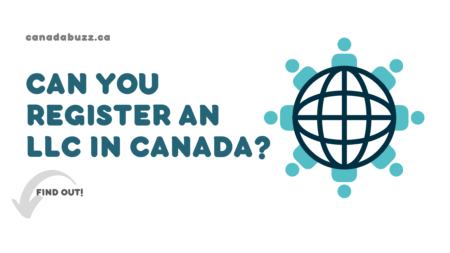Accessing a small business loan in Canada is often a tall order for a small business. Most Canadian banks – including the Big Five, are conservative, with loan requirements that make passing through the eye of a needle look like a walk in the park. However, you shouldn’t call it quits because there are a few other places you can get a loan for your small business.
Canada Small Business Financing Program
The Canada Small Business Financing Program was established to assist new and existing businesses, providing up to C$1 million in financing for an individual company. Businesses that gross in the region of C$10 million and below can apply for this loan at any bank, credit union, or Caisse Populaire in Canada.
BDC Xpansion Loan
The BDC Xpansion Loan is for businesses looking to break into new domestic or foreign markets and provides funding for:
- Technology investments and development of new products
- Launch of a new advertising campaign
- Patents, trademarks, and purchase of licenses
- Training and hiring of additional staff
- Certification courses
- Pay suppliers upfront to access special discounts
An eligible business can receive up to C$100,000 in long-term funding, and paid off portions of the loan can be re-advanced courtesy of the BDC and at a minimum of C$10,000. BDC provides special financing that ensures you grow your business without risking your everyday cash. Companies affected by COVID-19 may even get access to more working capital worth up to C$2 million to bankroll projects that can take the business back to pre-pandemic levels.
BDC Startup Financing Program
This loan is another BDC initiative that helps small businesses in the startup phase with potential future growth. Such companies may qualify for loans worth up to C$250,000 to be used for working capital, fixed assets, startup expenses, and marketing campaigns.
Microloans
Many financial institutions offer small business loans in Canada worth up to C$15000. These loans are tailored towards small business owners who ordinarily wouldn’t qualify for a traditional business loan. For example, there’s a loan program by Western Economic Diversification Canada that provides small business loans to business owners throughout Western Canada. You may consult your Caisse Populaire or credit union to find out more about this small business loan program.
Community Investment Loans
These loans come from nonprofit organizations established to assist people who cannot secure small business loans from a typical lending institution like banks. Depending on the type of loan you want, it’s possible to receive as little as C$2000 and as high as C$150,000.
Women Enterprise/ Resource Centres
Women in business will find the Women Enterprise/Resource Centre handy when looking for access loans and grants. And if a woman partly owns your business, you can get access to several loan options.
Aboriginal Business Canada
Canadian business owners of Aboriginal heritage can access a non-repayable contribution worth up to C$100,000. This fund is way better than a small business loan and can help expand small businesses or grow a startup. The critical period for a startup is at the beginning stage, and this fund can tide you through dangerous waters until your business is profitable.
Small Business Loans for Young Entrepreneurs
Young entrepreneurs between the ages of 18 and 39 can take advantage of this initiative that consists of several business loan programs. Thanks to Futurpreneur Canada, young business owners can receive funding up to C$60,000. There are also a few regional-based loan programs worth considering.
Angel Investor Networks
Angel investors are typically business-minded individuals who provide initial funding for a business or startup in exchange for equity stock convertible debt. Angel investors often seek higher returns than what’s available on the stock market and may often prefer to be active in the business. Although there are a few things to be aware of, angel investors remain an excellent loan resource for startups and small businesses.
Credit Unions
The criteria for getting a small business loan from a credit union are often less stringent than a bank. What’s more, the fees and rates are typically lower. However, you’d need to become a member and apply before you can be considered for a small business loan.
Family and Friends
Who better to receive money from than your family, friends, and loved ones? The funding you need might be closer than you think. It isn’t uncommon for parents to give their kids interest-free loans, and dependable friends can come to the rescue when you need them. However, you need to ensure whatever loan you take is paid back on time, so you don’t ruin the relationship.
What to Expect Applying for a Small Business Loan in Canada
It’s one thing to know where to get a small business loan and another thing entirely to know-how. While it’s true small business remains the lifeblood of the Canadian economy, these businesses face an uphill task securing financial assistance. Many small businesses are in dire need of funding, and applying for a loan needs adequate preparation. Below are what your lender will look out for in your small business loan application:
Collateral
The more conservative lending institutions like banks rate collateral highly amongst the things they look out for. A small business loan secured with collateral is one of the most straightforward loans to get. Small businesses and startups usually don’t have an assortment of assets, so you might consider securing your loan with your vehicle or house.
Commitment
Commitment means your money is invested in the business. The higher your monetary commitment, the better your chances of securing a small business loan. Potential lenders will be happy to know you’ve sunk a considerable amount of your money into the business before providing additional funds.
Credit History
What’s a business without a credit history? Just like your personal bank account and business bank account should remain separate, the same applies to your business which should have its credit history and credit score. A company with a credit history shows lenders how serious you are and your competence in handling the business’s finances. However, if your business is still budding, your personal credit score and credit history will suffice.
Age of Business
Another essential criterion lenders use to determine your loan eligibility is the length of time spent in the business. The longer you’ve been in business, the likelier your chance of getting a small business loan. In fact, private lenders typically prioritize businesses that have been in business for at least 12 months, while more conservative lenders look for 24 months or more. However, startups operating for 90 days can qualify for a startup loan.
Cash Flow
Your proposed lender will determine your cash flow with the forecast in your business plan. But you’ll still need to be specific about the type of financing you require, whether it’s for working capital or the purchase of equipment. Equally important is showing your proposed lender how you intend to use the funds to achieve your business objectives. Making a good impression is critical to securing a loan for your small business, and you stand in good stead if you:
- Have a top-notch management team
- Demonstrate business growth potential
- Provide proof of profitability
Annual Revenue
Potential lenders also have a minimum annual revenue your business must meet before approving your loan application. Expect to have an easier time if your small business earns between C$80,000 to C$100,000 annually or C$5,000 and C$10,000 monthly.
Requirements for a Small Business Loan
It’s a matter of procedure to provide certain information about yourself and your business when applying for a business loan. If it’s an in-person appointment, you’ll likely fill out a physical application. Applying online will also mean you fill out the application the same way. Some of the information you’re likely to provide include:
- Your personal details, including full name, phone number, email, and SIN number
- Your personal financial details like income, bank account
- Your business financial details such as income and bank account details
- Your business financial information, including business name, business address, phone number, email, and industry
- How much funding you need, and the purpose of funding
Documents you need to bring include:
- Business plan – whether your business is new or old, a business plan goes a long way to help you secure a loan by showing how you intend to use the funds and the process to repay the loan.
- Financial documents.
- Bank statements to track your business cash flow.
- Balance sheet to evaluate your business liabilities and assets.
- Income statement to find out your business expenses, product costs, and your net income.
- Tax returns to confirm your income with the CRA.
- Personal financial documents, including your credit report to ascertain your financial health.
In the wake of the pandemic, it has become necessary for many small businesses to seek loans. Ensure you find the right loan that fits your business needs and come prepared for the application process.
FAQs
How do I get a Small Business Loan?
An excellent credit score for yourself and your business, including ample assets as collateral, strong business financials, and a comprehensive business plan, will help qualify you for a loan. More years in business and a considerable annual revenue will further improve your chances.
How difficult is it to get a business loan?
It is often a tough ask securing a business loan in Canada due to the conservative nature of top-tier Canadian banks. However, there are other options you can consider, including angel investors, credit unions, and family and friends.








1 thought on “How to get a Small Business Loan in Canada”
Thanks for the information, Really useful to know about business loans in Canada.